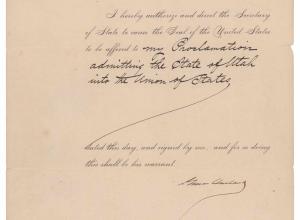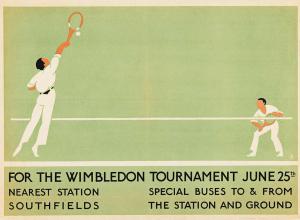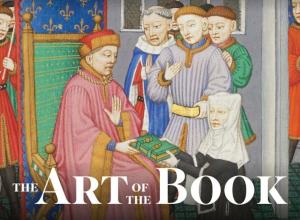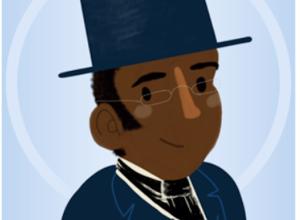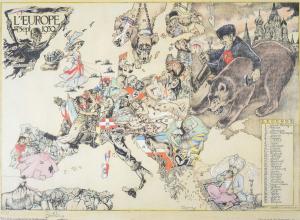Antiquarian Book Auctions, Part 2
I'm writing this series of posts on antiquarian book auctions primarily for those who haven't spent much time at antiquarian book auctions, including myself. The best way to learn is to do, and, once you've done, be willing to share it with others. That's what I'm trying to do here. If any of you more experienced book collectors or booksellers have some observations to add about auctions, please do so in the comment box below. I'm going to learn what I can from a very transparent auction: the upcoming The American Experience: 1630-1890 auction at Bonhams in New York on December 2. Even if you're a very experienced collector or bookseller, there's much to be learned in this auction, where all of the acquisition information, including price originally paid by the collection's current owner, Bruce McKinney, is included in the auction catalogue.
If you haven't already done so, you can access the online version of the catalogue here. One of the many high-spots offered for sale include landmarks of history, such as the first printing (1783) of the Treaty of Paris, when the United States is finally acknowledged as a free and independent nation. Other treasures offered for sale feature exquisite illustrations of the American environment and people: Thomas L. McKenney and James Hall's History of the Indian Tribes of North America, Mark Catesby's The Natural History of Carolina, Florida, and the Bahama Islands, and several works about the American Indians by George Catlin.
Before they were shipped to New York for the auction, I had the good fortune to be able to preview the books offered for sale here in San Francisco. It was a thrill to be in the same room with so many fine and important books, to see the scope of the collection laid out before me. One concept, something which I had learned for myself when I built my Dante collection was re-inforced for me at the auction preview: It takes discipline to develop a focus (subject) and scope (range of dates, or genres, geographic areas, or authors) for your own collection. The willingness to implement this discipline repeatedly over time and purchase books within the scope and focus of one's collection is one component of building a good, no, a great collection."Within the matrix of discipline, desire and seduction, random purchases become collections. In this way various and sundry items, the last acquired a decade ago, became the American Experience with an emphasis on changing perception, human understanding being fickle, beauty always in the eyes of the beholder. Freedom, it turns out, is much more than 'just another word for nothing left to lose.' To different people, be they men, women or children, whatever their color, religion, legal and financial standing, wherever and whenever, they are at once both unique and also threads in tapestries whose colors, like oil on water, appear differently to sundry observers. That historians today more focus on single stories than on broad brush theories recognizes this truth. Any more, the only simple ideas about human history are expressed in grade and high school texts. To the rest of the world fixed perspective is a chimera. Capturing these changing perspectives became my goal."
I spent some time looking at the books and talking with Christina Geiger, a Director at Bonhams, about what it takes to get a collection of this magnitude prepared for auction. Even though McKinney had kept meticulous records of each of his books, three people in three different locations worked for a few months to research, verify, and write the descriptions for each of the 314 items in the collection. She said they were fortunate to have been given a lot of lead time by McKinney to prepare.
Today's lesson about auctions:
Many auctions have a designated time for interested parties to examine up close and in person the material offered for sale. Most previews are open to the general public and you don't need an invitation to attend an auction preview. If you plan on bidding on a book, attending the preview would seem a worthwhile activity. You can verify condition and points of issue. You may also be able to garner more information by talking the auctioneer about the collection and the auction.
Also, when you begin to build a collection, choose a focus and a scope and stick to it! Truly great collections are not just the result of a mass accumulation of books; they are the result of thoughtful, purposeful, and strategic acquisition.
Here endeth the lesson for today.
Come back soon for Part 3 in the series!






